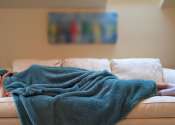In wine, there's health: Low levels of alcohol good for the brain
While a couple of glasses of wine can help clear the mind after a busy day, new research shows that it may actually help clean the mind as well. The new study, which appears in the journal Scientific Reports, shows that low ...
Feb 2, 2018
7
2793









